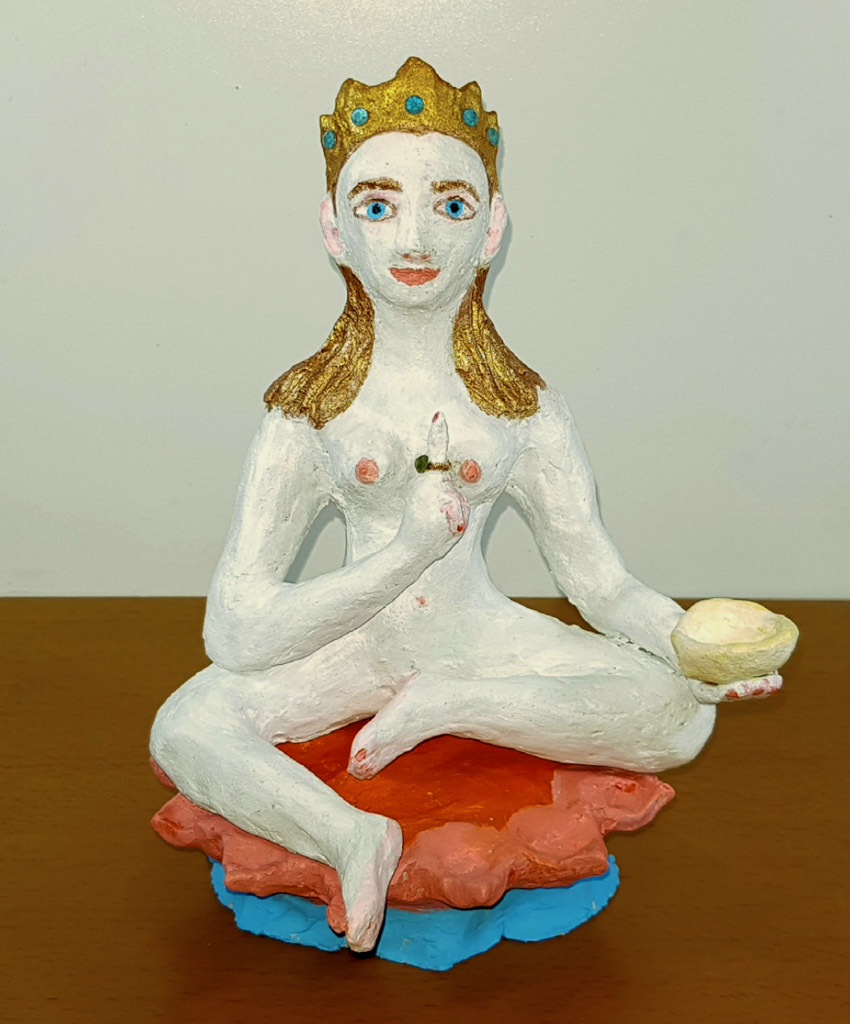Retelling: Vova Pyatsky and Smadar Pyatsky (based on the translations of the suttas published on Theravada.ru and SuttaCentral.net)
Russian Version: Четокхила сутта, Бесплодие и несвобода, Мадджхима Никая 16 | Три Ваджры
Translation to English: Roni Sherman and Marina Sherman
A warning
In a conversation with his disciples, the Buddha warns them of the dangers of spiritual sterility and oppression of the mind. He explains the causes of those states: spiritual sterility arises from lack of confidence in the Teacher, Dhamma and Sangha; from lack of diligence in self-restraint; from anger and rudeness; oppression of the mind arises from craving for sensual pleasure; from attachment to the body; from attachment to the subtle form; from indolence, overeating and craving for possession of pleasant things; from a desire to be reborn among powerful and enjoying gods.
Discarding the causes of sterility and lack of freedom
A mind which discards the causes of sterility and lack of freedom in practice develops four powers: 1) volition focused on overcoming vices; 2) experience in overcoming vices; 3) knowledge of the state in which vices have been overcome 4) penetration of thought into the causes of the appearance and disappearance of vices.
All these powers lead to the development of zeal, diligence and perseverance in the practice of Dhamma.
Confidence in liberation
Just as a chicken incubating its eggs, covering and warming them with its body, does not have to think “If only my chicks would hatch!” practitioners of Dhamma who are free of vices do not have to think, “If only I could attain liberation!”. The warmth and protection the hen gives its eggs are sufficient for the chicks to hatch from them. Similarly development of the wholesome powers of the mind in conjunction with discarding the causes of sterility and lack of freedom are sufficient for liberation.
Author
Retelling: Vova Pyatsky and Smadar Pyatsky (based on the translations of the suttas published on Theravada.ru and SuttaCentral.net)
Russian Version: Четокхила сутта, Бесплодие и несвобода, Мадджхима Никая 16 | Три Ваджры
Translation to English: Roni Sherman and Marina Sherman
A warning
In a conversation with his disciples, the Buddha warns them of the dangers of spiritual sterility and oppression of the mind. He explains the causes of those states: spiritual sterility arises from lack of confidence in the Teacher, Dhamma and Sangha; from lack of diligence in self-restraint; from anger and rudeness; oppression of the mind arises from craving for sensual pleasure; from attachment to the body; from attachment to the subtle form; from indolence, overeating and craving for possession of pleasant things; from a desire to be reborn among powerful and enjoying gods.
Discarding the causes of sterility and lack of freedom
A mind which discards the causes of sterility and lack of freedom in practice develops four powers: 1) volition focused on overcoming vices; 2) experience in overcoming vices; 3) knowledge of the state in which vices have been overcome 4) penetration of thought into the causes of the appearance and disappearance of vices.
All these powers lead to the development of zeal, diligence and perseverance in the practice of Dhamma.
Confidence in liberation
Just as a chicken incubating its eggs, covering and warming them with its body, does not have to think “If only my chicks would hatch!” practitioners of Dhamma who are free of vices do not have to think, “If only I could attain liberation!”. The warmth and protection the hen gives its eggs are sufficient for the chicks to hatch from them. Similarly development of the wholesome powers of the mind in conjunction with discarding the causes of sterility and lack of freedom are sufficient for liberation.

